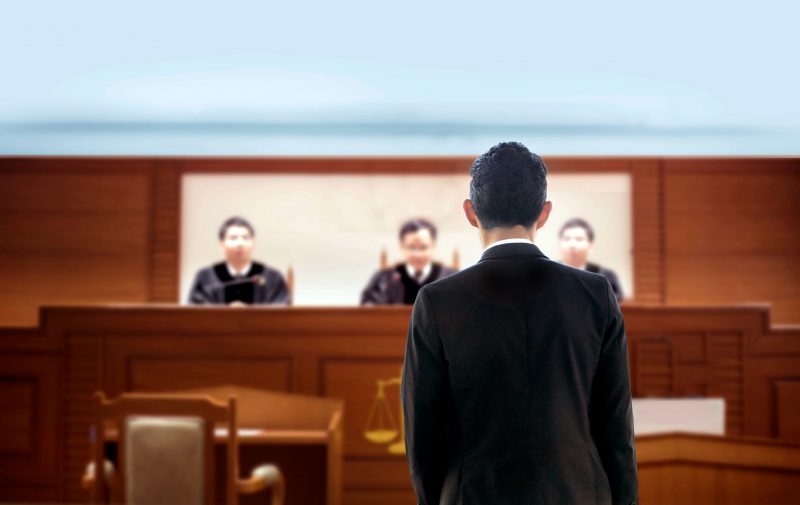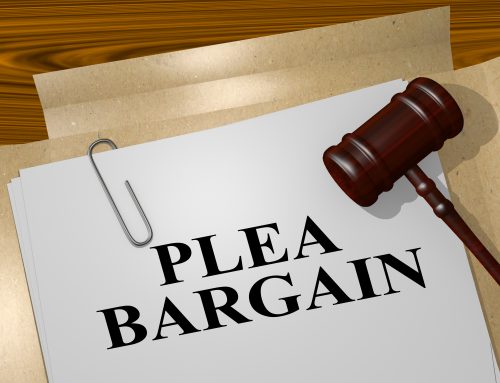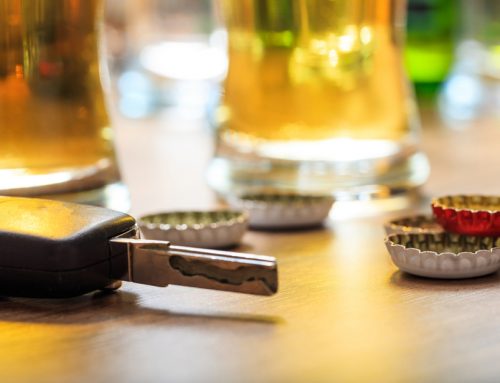Most criminal cases end with a plea bargain, rather than a trial. If you are facing criminal charges, or if a loved one is charged with a crime, it is important to understand the fundamentals of the plea bargaining process, so that you can discuss your options intelligently with your criminal defense lawyer.
- A plea bargain is a negotiated settlement.
Plea bargaining is the process of negotiating to resolve criminal charges without a trial. The resultant “plea bargain” is, essentially, an out-of-court settlement of a criminal case.
- A plea bargain is negotiated between the defendant and the prosecutor.
Any bargain is negotiated between the defendant and the prosecutor. Although the police can make recommendations, the prosecutor determines (a) whether the government will offer you a plea bargain and (b) what the terms of that bargain will be.
- There are two categories of plea bargains: charge bargains and sentence bargains.
A charge bargain is one in which the prosecutor agrees to dismiss or forego certain charges in return for your plea to other, lesser charges. A sentence bargain is one in which the prosecutor agrees to recommend a particular sentence or sentencing range. The prosecutor’s recommendation is simply that – a recommendation. It is not binding on the judge, and you cannot withdraw your guilty plea if the judge deviates from the recommendation at the time of sentencing. Thus, the value of a sentence bargain depends largely on the judge’s practice in deferring to prosecutors’ recommendations.
- A guilty plea constitutes a waiver of constitutional rights.
When you agree to plead guilty, you also agree to give up (or “waive”) these constitutional rights: the right to a jury trial; the right to confront your accusers; and the right to remain silent and refuse to incriminate yourself.
- A guilty plea must be made knowingly and voluntarily.
You will enter your plea at a hearing, presided over by a judge. The judge will question you to ensure that your plea is entered knowingly and voluntarily. You will be asked:
- Questions concerning your mental competence.
- Questions concerning your satisfaction with your legal representation.
- Questions to ensure that you understand the legal rights you are surrendering by pleading guilty, including trial and appellate rights.
- Questions to ascertain your understanding of the penalties for conviction.
- Questions about the plea agreement and any other threats or promises made.
- Questions to assure the judge that there is some factual basis for your guilt.
- A guilty plea counts as a criminal conviction.
A guilty plea entered as part of a plea bargain counts as a conviction, and you will be subject to all the collateral consequences that accompany a criminal conviction. Depending on your situation, this might include:
- Immigration-related consequences;
- Employment-related consequences;
- Loss of professional licenses;
- Loss of voting privileges;
- Loss of driving privileges; and
- Loss of the right to possess firearms.
- Juries are unpredictable.
No one can calculate precisely your chances of acquittal. However, certain factors may tip the scales and help you decide whether to take your chances at trial or strike a bargain. Factors to consider include:
- What are the witnesses going to say? Are they credible? Will they appeal to the jury?
- What physical evidence does the prosecution have? Was it lawfully obtained? Can it be suppressed?
- What is the prosecutor’s reputation?
- What is the maximum sentence you are facing if you are found guilty at trial?
- Your decision may hinge on personal factors.
The decision to plead guilty or proceed to trial is unique to each individual. In weighing your options, consider:
- Your age;
- Your appetite for risk;
- Your ability to endure a stressful trial;
- Your prior experience with prison, if any;
- Your family situation.
- It is your decision.
The decision to plead guilty or go to trial belongs to you – not your lawyer, not the prosecutor, not the judge. The law places the final decision in your hands because you are the one who must live with it. Given the gravity of this decision, it is best made with the counsel of a trusted and experienced criminal defense lawyer.
- Once your decision is made, it is difficult to undo.
After sentencing, you can withdraw your guilty plea only if you can demonstrate that it was made unknowingly and involuntarily.
If you would like more information, or if you would like to speak with a knowledgeable criminal defense lawyer about your situation, please call us.






